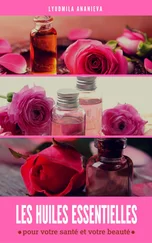I dropped it back in: it fell again: 1 day right here cause of it a tree would be shooting upwards, with a bit of luck and justice.
A new ring formed, disappeared, went through me invisible and off out into the world.
My mother was back at the barrel climbing over the side: she started singing again: every time she tramped down rings like the seed-rings I’d seen appear and disappear came off her legs in the water in the barrel: the rings widened, came out round her round the barrel then they went through me and round me too (a marvel) and off into the rest of the world in a huge sort of holding that happened when something came into or passed through another thing: the sun was already shrinking the piss: a new ring formed where the piss had been and gone: in its going it changed the stone of the path to a lighter different colour.
Then it was another time: there were yellow flowers dropping off the trees: they landed with a sound: who knew flowers had a voice? I was much better at throwing now: now when I threw I could always hit the barrel — and not just hit it, I could choose where to hit it, on the metal buckle or the top or bottom rim or whichever stave I aimed at.
I could throw now too so that I never hit a chicken unless I wanted to: it was cruel, though, to want to, and tempting, so I’d become an expert at almost: since if I threw it so it almost hit (but missed) a chicken would still do the funny dance to the music of the general bird outrage: there were no chickens or geese to almost hit today though, cause every time I came out into the yard now all the chickens and geese and ducks ran away shouting to the front of the house, and every time I came round the front after them they ran away to the back.
Ferara was the best place for brickmaking cause of the kind of clay from the river: you burnt the seaweed and stirred in the ashes and seasalt and baked the bricks: you could do anything with brickwork, all the colours, all the designs: then there was stone with all its many names and costs: my father held, sometimes, if he was in a good mood about money, a little piece of something up and we shouted what it was and the winner won the shoulderback round the yard with him the horse: perlato: paonazzo: cipollino with its coloured veins, my mother making me laugh pretending a stone held near the eyes could make her cry: arabescato, just the fineness of the word near made me cry: breccia, made up of broken things: and the sort I can’t remember the name of that’s 2 or more stones crushed together to make a whole new kind of stone.
But here in Ferara there was brick and we were a place you got bricks from.
I took aim halfway up the pile and I hit that exact right brick: a plume of brickdust flew up.
I scrabbled about at the edge of the pile for more broken bits, bunched my vest up and carried the pile of bits of brick in it back to the step: I sat down on the threshold ready to throw: it was even harder to keep your aim when you were sitting down: good.
Stop throwing bricks at my bricks!
That was my father: he’d heard the throwing and seen the dust flying: he marched the yard: he kicked away at the bits I’d collected: I ducked, knowing he’d slap me.
Instead he picked a broken piece of brick up, turned it over in his hand.
He sat down heavy on the step close beside me: he held up the bit of brick.
Watch this, he said.
He pulled at his trowel, got it out of his tool belt past his stomach then held the edge of it above the broken brick: he let the edge of the trowel hover for a moment at the brick’s edge: he touched with gentleness with the trowel’s edge a particular place on the brick: then he raised the trowel and brought it down very hard at exactly the place he’d touched: a bit of brick broke clean off and fell among the fallen flowers.
The piece of brick left in his hand was neat and square, he showed me.
Now we can use it to build with, he said. Now nothing’s wasted.
I picked up the fallen piece.
What about this bit? I said.
My father scowled.
My mother overheard me say it and she laughed: she came over, she was wearing her work dress the colour of sky, clay marks all over it like smudges of cloud: she sat on the other side of me: she had a brick in her hand too, she’d picked it off the pile as she passed: it was a nice thin brick, good colour, a doorway or window brick, from the ones made with the best clay: she winked at me.
Watch this.
She held out her other hand over my head for my father to pass her the trowel.
No, he said. You’ll ruin the brick. You’ll ruin the side of my trowel.
Sweet Cristoforo, she said. Please.
No, he said. Between you both I’ll have nothing left.
Well, when you’ve nothing —, my mother said.
It was what she always said: when you’ve nothing at least you have all of it : but this time when she got to the end of the word nothing she lunged out of nowhere for the trowel and he wasn’t expecting it, jerked his hand up and away too late, she leaned herself round me quick as a snake (warm and sweet the smell and her linen and skin) and she’d got it, she jumped up, twisted free, ran to the trestle.
She held the brick out in front of her, tapped at it hard 3 times and she scraped
(my trowel! my father said)
and she put the handle of the trowel on top of it and hit the brick and the trowel with the little stone mallet — once, then again: bits of brick flaked off: she tapped the brick with her finger: a large piece fell out of it: she stopped and wiped the dust off her nose: she held the trowel out to him: in her other hand she held up what was left of the brick she’d been breaking.
A horse! I said.
She gave it to me: I turned it over in both my hands: it had ears: it had scrapes: the scrapes were what made the tail.
My father was pouting down at his trowel: he rubbed the dust on its point with his thumb and examined the handle, not laughing: but my mother kissed him: she made him.
Another time: hot, and the cicadas: my mother was drawing a line in the ground with a stick.
I saw what it was before it became it: it’s the neck of a duck!
Then she moved to a new piece of ground and drew a line and then another then joined them to 2 other lines and a curve: it’s the place where the leg of a horse meets its body!
She finished the horse, started again, drew a line, then another, made a scuff in the dust and drew lines in the scuff: it’s a house! It’s our house!
I found a stick of my own in the tall grass and broke it near the base so it had a thick end and a thin end: I came back to the pictures: with the thin end I added 3 curves to the roof of the house she’d drawn.
Why have you put a tree on the roof? she said.
I pointed up at the roof of our house behind us, at the place where a twig that had taken root in the ridge on the top stuck up in the air.
Ah, she said. You’re right.
I coloured with pleasure at the being right: with the thicker end of the stick I drew a slope, a circle, some straight lines then a curve: we both looked over at my father’s back: he was at the far end of the yard loading the cart.
My mother nodded.
That’s good, she said. It’s very good. Well seen. Now. Do me something you can’t see with your eyes.
I added a straight line to the forehead of her horse.
Very witty, she said, oh, you’re a very witty cheat.
I said I wasn’t, cause it was true, I had never with my eyes truly seen a unicorn.
You know what I meant, she said. Do as I asked.
She went to collect the eggs: I closed my eyes, I opened them: I turned the stick upside down, used the thin end of it.
That one’s him angry, I said when she came back. That one’s him kind.
Читать дальше












